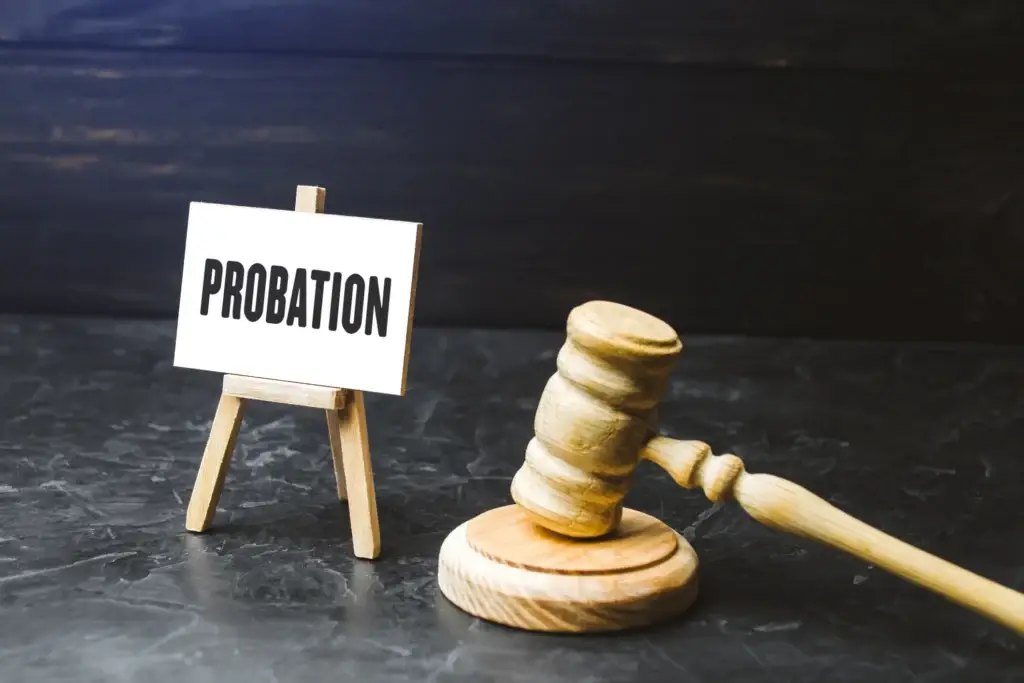April 21, 2025
Your Guide to Success: Practical Tips for Successfully Completing Your Alcohol Awareness Class

Facing a requirement to complete an alcohol awareness class, particularly when it’s court-ordered, can understandably feel like a burdensome and stressful task. You might be dealing with the legal consequences of an alcohol-related offense, working towards driver’s license reinstatement, or fulfilling other obligations. Regardless of the specific reason, approaching your class with a clear strategy and the right preparation can transform this requirement into a manageable experience and even an opportunity for valuable personal growth. Successfully completing the course is not just about checking a box; it’s crucial for navigating your legal situation smoothly and making positive changes for your future.
In this comprehensive guide, we’ll share practical, actionable tips designed to help you successfully complete your alcohol awareness course. By implementing these strategies, you can gain the most benefit from the educational experience, reduce anxiety, stay on track with deadlines, and smoothly meet all your court, DMV, and other legal requirements.
Why Successfully Completing Your Alcohol Awareness Class is Absolutely Crucial
Before we delve into the specific strategies for success, it’s vital to understand the significant impact that completing your alcohol awareness class has on various aspects of your life. Viewing the class as a necessary and beneficial step, rather than just an inconvenience, can significantly boost your motivation and engagement.
- Ensures Legal Compliance: This is the most immediate reason for many. Courts mandate these classes as part of sentencing, probation, or diversion programs specifically to educate offenders and help prevent future alcohol-related offenses. Failing to complete the class within the required timeframe is a direct violation of a court order. Consequences for non-completion can be severe and may include:
- Revocation of probation or parole.
- Issuance of a warrant for your arrest.
- Additional fines and court costs.
- Extended driver’s license suspension.
- Potential jail time.
- Hindrance in getting charges reduced or dismissed if the class was part of a plea agreement.
- Facilitates Driver’s License Reinstatement: For many individuals, completing an approved alcohol awareness class is a mandatory prerequisite for regaining their driver’s license after a suspension or revocation due to a DUI or DWI. The DMV typically requires proof of successful completion (your certificate) before they will reinstate your driving privileges. Delaying completion directly delays getting back on the road. For a comprehensive overview of how these classes specifically help with license reinstatement, see our related post: Can Alcohol Awareness Classes Help Restore Your Driver’s License?
- Supports Personal Growth and Prevents Future Issues: Beyond the legal obligations, the curriculum of a legitimate alcohol awareness course provides valuable, evidence-based insights into the effects of alcohol on the body and mind, the dynamics of addiction, responsible decision-making, and strategies for avoiding high-risk situations. Engaging with this material can genuinely help you make healthier lifestyle choices, understand the root causes of past behaviors, and significantly reduce the likelihood of future alcohol-related incidents, thereby helping you avoid future legal trouble altogether.
- Positive Impact on Your Record and Standing: While completing the class does not typically erase a past offense from your record, successfully fulfilling all court-ordered requirements, including educational programs, demonstrates accountability and a commitment to rehabilitation. This can be viewed favorably by courts, probation officers, and potentially in future legal contexts. Learn more about how these classes relate to your driving record: Alcohol Awareness Courses and Your Driving Record: What You Should Know.
- Potential Financial Benefits: Successfully completing a mandated class avoids potential additional fines and court costs associated with non-compliance. Furthermore, some insurance companies may offer discounts or mitigate premium increases upon receiving proof of successful completion. Alcohol Awareness Classes and Insurance Discounts.
Essential Strategies for Completing Your Alcohol Awareness Class Successfully
Approaching your alcohol awareness class with intention and employing effective strategies can make a significant difference in your learning experience and your ability to complete it on time.
1. Understand the Course Requirements Clearly:
Before you even enroll, and certainly before you start, meticulously review all documentation from the court, your probation officer, or the DMV. Pinpoint the exact requirements for the alcohol awareness class:
- Required Duration: Is it a 4-hour, 8-hour, 12-hour, or even longer class? Taking a class of the incorrect length will mean your completion is rejected. 8 Hour vs 12 Hour Alcohol Awareness Classes explains the differences in duration.
- Specific Modules or Topics: Are there any specific subjects your court requires the course to cover?
- Deadline for Completion: What is the absolute latest date by which you must finish the course? Note this prominently.
- Method of Certificate Submission: How and where must you submit your certificate of completion (e.g., mail to court clerk, deliver to probation officer, upload to a DMV portal)?
Knowing these specifics upfront prevents confusion, allows you to choose the right course, and ensures you meet all deadlines.
2. Choose a State-Approved and Court-Accepted Provider:
This is perhaps the most critical tip. All your effort in completing the class is wasted if the provider is not officially recognized and approved by the authority requiring your completion.
- Always choose an accredited provider like Courseable whose Online Alcohol Awareness Classes are specifically state-approved for your jurisdiction and for the purpose for which you are taking the class (e.g., for DUI, for MIP, for DMV).
- Verify the provider’s accreditation directly with the relevant state agency (DMV, Department of Health, etc.) or your local court/probation office before you enroll and pay. Do not rely solely on the provider’s website claims.
- Understand what “state-approved” truly means and why it’s essential for legal acceptance. Finding a State-Approved Alcohol Awareness Course Online provides a complete guide on how to do this verification process. How to Verify if an Online Alcohol Awareness Class is Legitimate] offers detailed steps to confirm a provider’s credibility.
Successfully completing a mandated class avoids potential additional fines and court costs associated with non-compliance.
Time Management and Scheduling Strategies:
3. Schedule Dedicated Time Blocks for the Course:
Online alcohol awareness classes offer tremendous flexibility Online vs. In-Person Alcohol Awareness Classes: Which is Better?, but this also means you need self-discipline. Treat your course like any other important appointment. Look at your week and schedule specific, realistic time blocks (e.g., 30-60 minutes each) dedicated solely to working on the class. Putting it on your calendar helps ensure it actually gets done. Consistency builds momentum.
4. Avoid Procrastination – Start Early!
Do not wait until the last minute to enroll or begin your course. As soon as you have the court order or requirement, start the process of finding an approved provider and begin the coursework. Starting early helps you:
- Have ample time to research and verify the legitimacy of the provider.
- Accommodate unexpected technical issues or personal emergencies.
- Allow sufficient time to review material if you struggle with quizzes or tests.
- Ensure your certificate is processed and submitted to the court/DMV well before your deadline, avoiding potential non-compliance issues. Alcohol Awareness Class Certification: How Long Is It Valid? explains why timely submission is crucial.
Effective Study and Engagement Techniques:
5. Set Clear, Achievable Goals for Each Session:
Before you begin a study session, decide exactly what you want to accomplish. For instance, “Today, I will complete modules 1 and 2” or “Today, I will review my notes from last session and take Quiz 1.” Setting small, measurable goals makes the task less overwhelming and provides a sense of accomplishment as you progress.
6. Take Thorough Notes:
Even if the course doesn’t require note-taking, doing so significantly enhances your retention and comprehension of the material. Jot down key definitions, important laws, potential consequences, strategies for avoiding risky behavior, and concepts that you find particularly important or challenging. Your notes will be an invaluable resource when reviewing for quizzes or the final exam.
7. Engage Actively with the Content:
Don’t just passively click through the material. Actively engage with the course content:
- Highlight key points within the online platform if the feature is available.
- Pause videos or reading sections to summarize the information in your own words.
- Think about how the concepts apply to real-life situations, including your own past experiences (anonymously).
- If the course offers interactive elements, participate fully.
- If the provider has a system for asking questions, utilize it if something is unclear.
Navigating Assessments and Tests:
8. Familiarize Yourself with the Test Formats:
Understand how your knowledge will be assessed. Most online alcohol awareness courses use multiple-choice or true/false questions for quizzes and final exams. Knowing the format helps reduce test anxiety. Do Online Alcohol Awareness Classes Include Tests? provides more details on what to expect with testing.
9. Utilize Practice Quizzes and Review Modules:
If the online course offers practice quizzes or allows you to review modules before the final exam, take full advantage of these resources. Practice tests are excellent, low-stakes ways to gauge your understanding, identify areas where you need more review, and build confidence before taking the graded assessments.
Staying Motivated and Focused Throughout Your Course:
10. Remember Your “Why”:
Whenever you feel your motivation flagging or the material feels tedious, take a moment to remind yourself why you are taking this class. Focus on the positive outcomes: getting your license back, fulfilling your legal obligation, avoiding future trouble, gaining valuable knowledge for healthier living, achieving peace of mind. Writing down your “why” and keeping it visible can be a powerful motivator.
11. Reward Your Progress:
Acknowledge and celebrate your milestones. Finishing a difficult module, completing a quiz, or dedicating a solid block of study time are all worth acknowledging. Give yourself a small, healthy reward – a short break, a favorite snack, a few minutes of a fun activity – to reinforce positive study habits.
Technical Tips for a Smooth Experience:
12. Ensure Reliable Internet Connectivity:
Online courses require a stable internet connection to function correctly. An inconsistent connection can lead to frustration, loss of progress, or difficulty accessing course materials. If your home internet is unreliable, consider completing the course at a library, community center, or another location with stable Wi-Fi.
13. Use an Updated Browser and Computer/Device:
Ensure you are using a relatively modern computer, laptop, tablet, or smartphone and an updated web browser (like Chrome, Firefox, Safari, Edge). Outdated technology can cause compatibility issues with the online course platform, preventing modules from loading correctly or tracking your progress.
Creating the Right Learning Environment:
Acknowledge and celebrate your milestones.
14. Minimize Distractions:
Find a quiet, comfortable space where you can focus without interruptions. Turn off notifications on your phone, close unnecessary tabs on your computer, and let1 household members know you need focused time. A distraction-free environment allows you to concentrate on the important course material.
15. Maintain a Positive and Open Mindset:
Approach the alcohol awareness class with an open mind and a willingness to learn, rather than viewing it solely as a punishment or inconvenience. Frame it as an investment in your future well-being and legal stability. A positive attitude can make the learning process more effective and the overall experience much less frustrating.
16. Utilize Provider Support Services:
Don’t hesitate to reach out to the online course provider’s customer support if you encounter technical issues, have questions about navigating the platform, or need clarification on course content. Legitimate providers offer support to help you succeed.
17. Understand the Certificate Submission Process:
Knowing exactly how and where to submit your certificate upon completion is crucial. Confirm if you need to submit it to the court, your probation officer, the DMV, or all of the above. Get this information early to avoid last-minute confusion. Alcohol Awareness Class Certification: How Long Is It Valid? discusses the importance of timely submission for validity purposes.
Leveraging Courseable’s Online Learning Advantages for Your Success
Choosing a trusted online provider like Courseable offers unique advantages specifically designed to facilitate your successful completion:
- Immediate Certificate Access: Our instant digital certificates mean you can download and submit your proof of completion immediately upon finishing, eliminating delays in meeting deadlines for courts or the DMV.
- Flexible Scheduling: Our platform allows you to learn at your own pace, 24/7, giving you complete control over your study schedule to fit seamlessly into your life Online vs. In-Person Alcohol Awareness Classes: Which is Better?
- Professional, Empathetic Support: Courseable offers knowledgeable and compassionate customer support teams ready to assist you with any technical or course-related questions, helping you overcome potential hurdles What Happens if You Fail an Alcohol Awareness Class? often involves utilizing support).
- State-Approved & Reliable: Our courses are state-approved, ensuring your time and effort meet legal requirements Finding a State-Approved Alcohol Awareness Course Online.
Most legitimate online courses, including Courseable, understand that participants may need extra attempts. Providers typically allow multiple retakes on quizzes and the final exam. If you fail, review the material again before attempting the test again. Utilize the provider’s support if you continue to struggle.What Happens if You Fail an Alcohol Awareness Class? provides detailed guidance.
With online providers like Courseable, you receive your official certificate of completion immediately upon successfully completing all course requirements and passing any final assessments. You can typically download or print it right away. Ensure you save a digital copy and print a physical copy for your records and submission.
This policy varies by provider. Reputable providers usually allow multiple attempts (often 2-3 or more) on the final exam before requiring you to potentially retake the entire course. Check the specific provider’s policy before enrolling.
Yes. There is usually a time limit to complete the course, often set by the court or DMV mandate (e.g., completion within 60 or 90 days of the order). The online provider may also have their own internal time limit (e.g., access expires after 90 or 180 days). Always check your court documentation and the provider’s terms. Missing the deadline set by the court can have serious consequences.
If you realize you are going to miss your court-ordered deadline, contact your probation officer or the court clerk immediately. Explain the situation honestly. Consequences for missing deadlines can be severe, including probation violation, fines, or warrants. Proactive communication is essential, though it doesn’t guarantee the deadline will be extended.
Typically, no. While taking notes is a highly recommended strategy for your learning and success, it is not usually a graded activity or a requirement for course completion. Your completion is based on working through the modules and passing the quizzes/tests.
For questions specifically about your court case, probation terms, deadlines, or the legal consequences you face, you should contact your probation officer, the court clerk, or your attorney (if you have one). The online course provider’s support staff can only assist with questions directly related to the course content or platform. Many general questions are answered on our main FAQ page: Alcohol Awareness Class FAQs.
Yes. Classes vary primarily by duration (e.g., 4, 8, 12 hours) which is dictated by the offense and jurisdiction. Some providers also offer programs specifically tailored for certain groups, like underage offenders Guide to Alcohol Awareness Classes for Underage Drinking Offenses.
Final Thoughts: Success is Achievable with the Right Approach
Facing a court-ordered alcohol awareness class might not be how you envisioned spending your time, but successfully completing it is a vital step towards fulfilling your legal obligations, regaining privileges like your driver’s license, and empowering yourself with knowledge for a healthier future. By understanding the requirements, choosing a state-approved provider, managing your time effectively, engaging actively with the material, and utilizing available support, you can navigate this process successfully.
Courseable is dedicated to providing a trusted, supportive, and convenient online learning experience specifically designed to help you meet your court requirements efficiently and confidently. Our state-approved classes and helpful resources are here to support you every step of the way.
Ready to take control and successfully complete your alcohol awareness class? Begin your journey confidently today with Courseable’s Online Alcohol Awareness Classes Courseable’s Online Alcohol Awareness Classes—trusted, supportive, and designed for your success in meeting your requirements.

Do Online Alcohol Awareness Classes Include Tests? Everything You Need to Know About Assessments
Read More »Disclaimer: Seek Professional Guidance for Your Specific Case
This article is intended as general guidance and recommendations for educational purposes only. It does not constitute legal advice, medical advice, or professional counseling. Specific requirements for alcohol awareness classes, acceptable providers, deadlines, and the consequences of non-compliance vary significantly by state, county, and individual case details and are subject to change. You must always consult directly with your attorney, probation officer, the specific court involved in your case, or the relevant state DMV or licensing authority to confirm the exact requirements applicable to your specific situation and to get personalized advice. Ensure you choose an accredited provider whose certificate will be accepted by the mandating authority.
Related Posts

Alcohol Awareness Classes and Probation: Understanding Your Requirements and Ensuring Compliance

How to Confidently Talk to Your Employer About a Court-Ordered Alcohol Awareness Class
Start Your Court Ordered Alcohol Class


